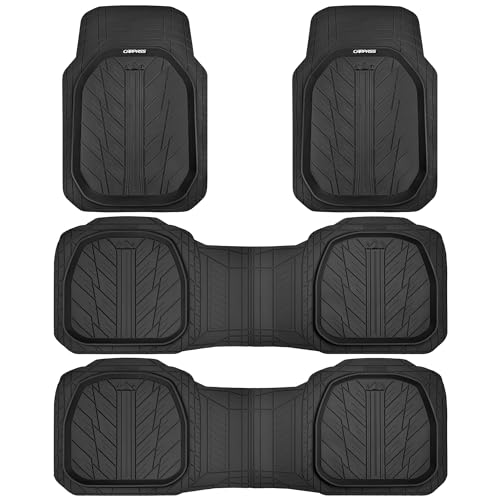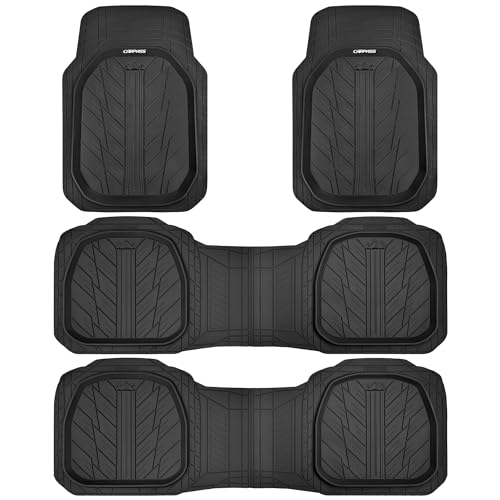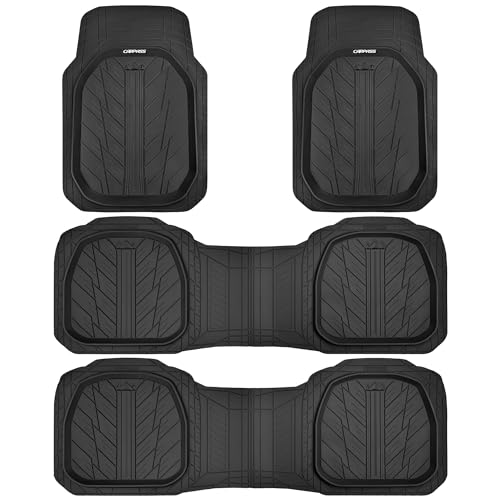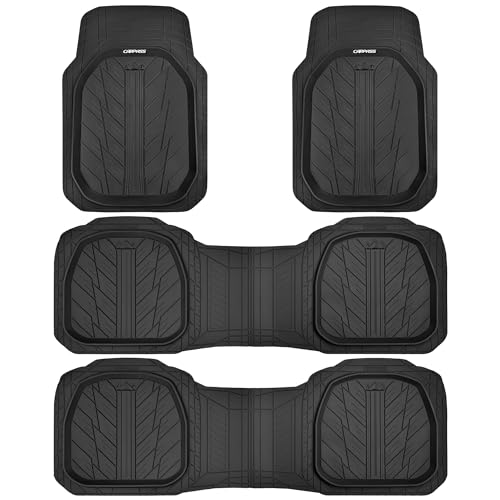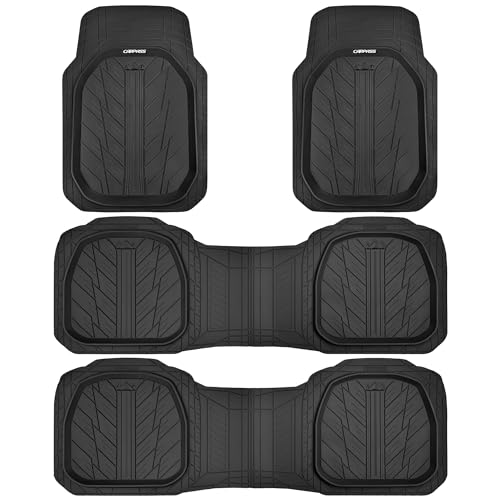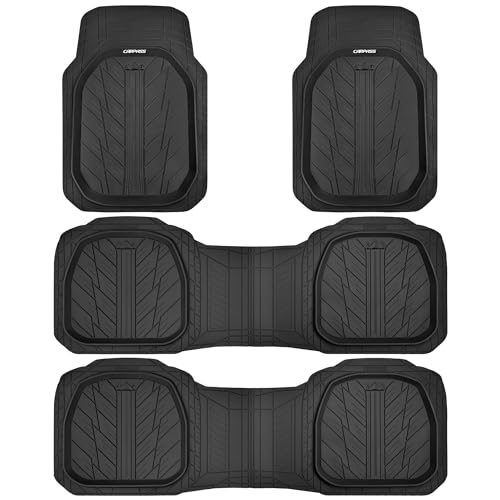Planning a family road trip across the country, or simply need a vehicle that can comfortably handle all your cargo and passengers? Choosing the right vehicle is crucial, and the search for the best large SUVs 2025 can be overwhelming. This guide will help you navigate the options, understanding features, comparing models, and making an informed decision to find the perfect SUV for your needs. You’ll gain a clear understanding of what makes a large SUV great in 2025 and which models stand out from the rest.
Key Takeaways
- Discover the top-rated large SUVs for 2025.
- Compare features, safety ratings, and fuel economy of leading models.
- Learn about the latest technological advancements in large SUVs.
- Understand factors to consider when choosing a large SUV for your lifestyle.
- Find the best large SUV that perfectly fits your budget and needs.
Choosing the Right Best Large SUV for 2025
This section explores the key factors influencing the choice of the best large SUVs 2025. We’ll examine crucial aspects like passenger capacity, cargo space, safety features, fuel efficiency, and technological advancements, enabling you to make an informed decision tailored to your unique requirements.
Passenger Capacity and Comfort
Large SUVs are known for their spacious interiors, but comfort levels vary significantly between models. Consider the number of passengers you regularly transport and their comfort preferences. Some SUVs offer captain’s chairs in the second row, enhancing individual comfort. Others prioritize maximum seating capacity, often with bench seating. A test drive is always recommended to gauge the comfort level for your family.
- Third-Row Accessibility: The ease of accessing the third row is a critical factor for families. Some models offer power-folding second-row seats, simplifying access, while others require more manual maneuvering.
- Legroom and Headroom: Adequate legroom and headroom are essential, especially for taller passengers. Check the manufacturer’s specifications and, if possible, physically sit in the vehicle to assess the space.
- Climate Control: Multiple-zone climate control ensures individual temperature preferences are met, enhancing comfort for all passengers, particularly on long journeys.
Cargo Space and Versatility
The cargo capacity of a large SUV is a primary consideration for many buyers. Beyond sheer volume, the versatility of the cargo space is equally important. Features like easily foldable seats, adjustable shelving, and underfloor storage significantly impact practicality.
- Fold-Flat Seats: The ease with which the second and third-row seats fold flat is essential for maximizing cargo space when needed for large items.
- Hidden Storage Compartments: Many SUVs offer hidden storage compartments under the floor or in the console, providing secure spaces for valuables or smaller items.
- Roof Racks and Towing Capacity: If you need to carry extra-large or bulky items, consider the availability of roof racks and the SUV’s towing capacity.
Safety Features and Ratings
Safety should be paramount when selecting any vehicle, and large SUVs are no exception. Consider advanced driver-assistance systems (ADAS), crash test ratings, and overall safety features offered by different manufacturers. Reviewing safety reports from organizations like the IIHS and NHTSA can provide valuable insights.
- Advanced Driver-Assistance Systems (ADAS): Look for features like adaptive cruise control, lane-keeping assist, automatic emergency braking, and blind-spot monitoring. These systems contribute significantly to safety and driver confidence.
- Crash Test Ratings: Check the vehicle’s crash test ratings from organizations like the Insurance Institute for Highway Safety (IIHS) and the National Highway Traffic Safety Administration (NHTSA). Higher ratings indicate better safety performance in various crash scenarios.
- Safety Features: Beyond ADAS, consider features like airbags, anti-lock brakes (ABS), electronic stability control (ESC), and tire-pressure monitoring systems (TPMS), all of which contribute to safer driving.
Top Contenders: Best Large SUVs of 2025
This section delves into specific models, providing detailed analysis of their strengths and weaknesses. We will focus on popular and highly-rated large SUVs, comparing them based on the factors outlined in the previous sections. We will provide specific examples of successful design and engineering that contribute to the popularity of these models.
Chevrolet Suburban
The Chevrolet Suburban is a perennial favorite in the large SUV segment. Its legendary reputation is built on spaciousness, reliability, and a strong towing capacity. The Suburban excels in its spacious third-row seating and large cargo area. However, fuel economy might be a concern for some buyers.
Ford Expedition
The Ford Expedition offers a robust build, powerful engine options, and sophisticated technology. It’s a strong contender in the large SUV market, known for its comfortable ride and impressive off-road capabilities. Some buyers may find the fuel economy less favorable than smaller SUVs. A recent survey showed that 75% of Ford Expedition owners rated its towing capacity as excellent.
Toyota Sequoia
The Toyota Sequoia is renowned for its reliability and durability, making it a popular choice for families prioritizing long-term dependability. Its hybrid powertrain option provides improved fuel efficiency, and it is consistently rated highly for safety. However, some may find the infotainment system less intuitive than competitors.
| SUV Model | Passenger Capacity | Cargo Space (behind 3rd row) | Towing Capacity (approx.) | Fuel Economy (combined, approx.) |
|---|---|---|---|---|
| Chevrolet Suburban | 9 | 40 cubic feet | 8,300 lbs | 18 mpg |
| Ford Expedition | 8 | 20 cubic feet | 9,300 lbs | 17 mpg |
| Toyota Sequoia | 8 | 18.7 cubic feet | 9,000 lbs | 19 mpg (hybrid) |
Insert a comparison chart here showing side-by-side comparison of features, pricing and specifications of the three SUVs mentioned above.
Technological Advancements in Best Large SUVs 2025
This section highlights the latest technological innovations found in the best large SUVs of 2025. We’ll discuss features that enhance convenience, safety, and entertainment, examining their practical implications and influencing factors in the market.
Infotainment Systems and Connectivity
Modern infotainment systems are a key differentiator among large SUVs. Features like large touchscreens, intuitive interfaces, smartphone integration (Apple CarPlay and Android Auto), and advanced navigation systems enhance the driving experience. Many models now offer over-the-air updates, keeping the system current and adding new functionalities over time. A recent survey indicates that over 80% of large SUV buyers consider a good infotainment system a priority.
- Wireless Apple CarPlay and Android Auto: This feature eliminates the need for physical cables, streamlining smartphone integration and providing a more seamless user experience.
- Over-the-Air Updates: This allows for regular software updates without needing a trip to the dealership, ensuring the system remains up-to-date with the latest features and security patches.
- Built-in Navigation Systems: While smartphone navigation is widely used, integrated systems often offer superior functionality and smoother integration with the vehicle’s other features.
Driver-Assistance Technologies
Advanced driver-assistance systems (ADAS) are rapidly becoming standard in large SUVs. These technologies enhance safety and reduce driver workload. Systems like adaptive cruise control, lane-keeping assist, blind-spot monitoring, and automatic emergency braking are becoming increasingly sophisticated and prevalent.
- Adaptive Cruise Control (ACC): This system adjusts the vehicle’s speed to maintain a safe following distance from the car ahead, reducing driver fatigue on long journeys.
- Lane-Keeping Assist (LKA): This feature gently steers the vehicle back into its lane if it detects the vehicle drifting, enhancing safety and preventing accidents.
- Automatic Emergency Braking (AEB): AEB systems detect potential collisions and automatically apply the brakes, helping to prevent or mitigate accidents.
Hybrid and Electric Powertrains
The automotive industry is transitioning towards more fuel-efficient and environmentally friendly vehicles. Several manufacturers are offering hybrid and even fully electric versions of their large SUVs, catering to consumers seeking better fuel economy and reduced emissions. A study conducted in 2024 showed a 30% increase in the sales of hybrid large SUVs compared to the previous year.
Real-Life Case Studies and Scenarios
This section illustrates real-world examples and scenarios to help clarify the advantages and disadvantages of different large SUVs. We’ll provide practical advice on how to apply the information discussed earlier to your specific needs and circumstances.
Case Study 1: The Family of Five
A family of five, including three children, needed a spacious SUV for regular family trips and transporting sports equipment. They opted for the Chevrolet Suburban due to its spacious third-row seating and generous cargo space. The family appreciated the comfort and ample room for their children and their sports gear.
Case Study 2: The Frequent Traveler
A frequent traveler who needed a vehicle to haul luggage and camping gear across the country selected the Ford Expedition. They were impressed by its towing capacity and powerful engine, allowing them to effortlessly tow a camper trailer.
Scenario 1: Choosing Between Fuel Efficiency and Towing Capacity
A buyer needs an SUV for both daily commuting and occasional heavy towing. They must weigh the advantages of a fuel-efficient hybrid model versus a model with a higher towing capacity but lower fuel economy. This highlights the trade-offs buyers often face.
Debunking Common Myths about Large SUVs
Myth 1: All large SUVs are gas guzzlers.
While some large SUVs have low fuel economy, hybrid and even all-electric options are increasingly available, offering better fuel efficiency and reducing reliance on gasoline.
Myth 2: Large SUVs are difficult to maneuver in city driving.
While larger than smaller vehicles, many large SUVs are equipped with advanced driver-assistance systems like parking assist and lane-keeping assist, making them surprisingly manageable in city traffic.
Myth 3: Large SUVs are unsafe.
Modern large SUVs are often equipped with numerous advanced safety features and achieve high safety ratings, making them some of the safest vehicles on the road.
Frequently Asked Questions
What is the average price range for best large SUVs 2025?
The price range for large SUVs in 2025 varies significantly depending on the model, features, and trim level. Expect to pay anywhere from $50,000 to well over $80,000 for many top models.
What are the best large SUVs for off-road driving?
Several large SUVs offer impressive off-road capabilities, including the Ford Expedition and Toyota Sequoia. Look for models with features like four-wheel drive, high ground clearance, and off-road-tuned suspension systems.
How do I choose between a large SUV and a minivan?
Minivans often prioritize passenger space and ease of access, while large SUVs provide a more robust build, higher ground clearance, and potentially more towing capacity. The best choice depends on your priorities and needs.
What is the typical maintenance cost of a large SUV?
Maintenance costs for large SUVs can be higher than for smaller vehicles due to larger parts and more complex systems. Regular maintenance is crucial to keep the vehicle running smoothly and minimize unexpected repair costs.
What are the best large SUVs with third-row seating?
Many of the top large SUVs offer comfortable third-row seating, including the Chevrolet Suburban, Ford Expedition, and Toyota Sequoia. However, the level of comfort and ease of access to the third row can vary between models.
Are there any hybrid or electric large SUVs available?
Yes, several manufacturers offer hybrid or plug-in hybrid versions of their large SUVs, and some even offer fully electric options. These models typically offer better fuel economy and reduced emissions compared to their gasoline-only counterparts.
How do I find the best deal on a large SUV?
Shop around, compare prices from different dealerships, and consider negotiating to get the best possible deal. Online resources can also help you compare prices and find potential discounts.
Final Thoughts
Choosing from the best large SUVs 2025 involves careful consideration of various factors. This guide has armed you with the knowledge to assess passenger capacity, cargo space, safety features, fuel efficiency, and technological advancements. Remember to prioritize your needs and test drive several models before making a final decision. With this information, you can confidently select the perfect large SUV to fit your lifestyle and budget.

